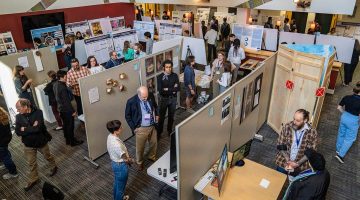‘The Maine Question’ explores using robotics in manufacturing
Robots are coming — or in some cases, have come — to Maine but not to destroy civilization like in the movies. They’re here to help, specifically to help Maine manufacturing companies modernize and become more productive. The University of Maine Advanced Manufacturing Center (AMC) is helping manufacturers in the state integrate new robotics, such […]
Read more



